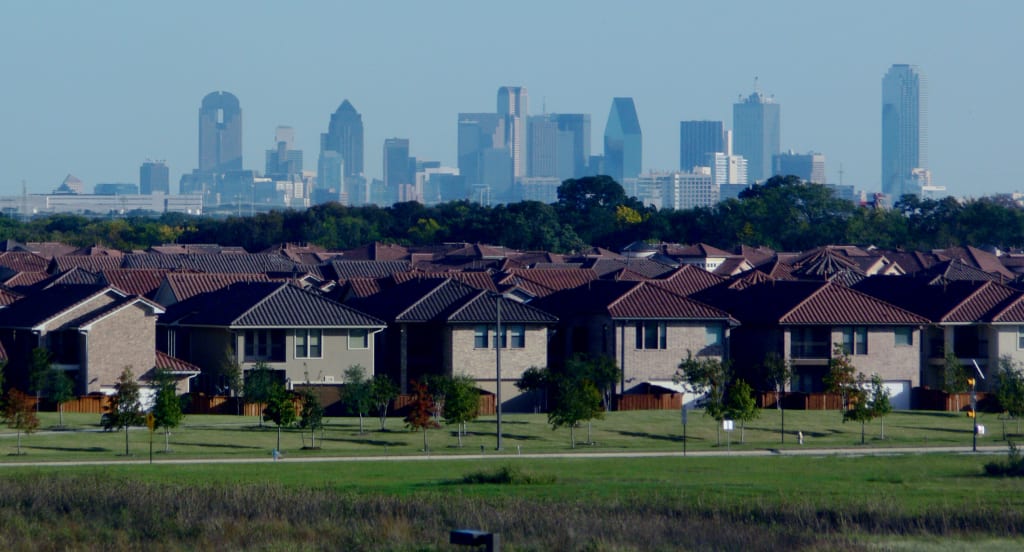The sins of the grandfathers
Our grandparents gave their children the world -- then took it back again

When I stopped being able to relax, I didn't even notice it happening. Between one childhood summer and the next, I went from walking to places just to be there and watching fish swim in shallow water to having a Purpose. I still knew where to go to hear baby frogs sing and why home-made ice cream tasted better than store-bought, but it stopped being important. Or so I thought.
As I moved through childhood, I began developing an insatiable demand for things to make sense -- and a need to stay alert in case the answers turned up in front of me. Why would anyone spend time watching tree branches move with the wind when there were so many things to DO?
From my tweener years on, I had a mission on my mind wherever I went. I wanted to read new books and ask a million questions and find out how things worked. I had a sense that the world was waiting for me to find out where it had hidden the most interesting parts of itself.
Only later did I find out that the fear was not an immutably part of the sky. I consider it a miracle to know that now, even though it took me 40 years to figure it out. Having learned more about the battles my parents fought, I can at least understand why they made the choices that they did.
Nameless fears
Being raised as a middle class American between the late 60s and 70s, I sensed nameless fears in the air from early on. Our parents were being slow-walked into a trap that began to close on them just as they hit adulthood, and their instincts must have been telling them to be on guard 24/7.
My husband contends that the election of Ronald Reagan was the turning point, the moment at which a perfect storm of conservative forces came together, including those who feared and loathed leaders of the civil rights era and evangelicals looking for someone to give voice to their fears of losing social control. Given the rage he tapped, it's almost surprising why it took so long for someone like Reagan to get there in the first place.
Few if any of the boomer moms and dads had a clue what was happening or if they did know, what to do about it. They just knew that the financial and societal stability their parents had enjoyed had evaporated like a soap bubble. They may have approved of the changes wrought by civil rights victories, but boy, did they pay for them when those who felt cheated took their revenge.
As boomer parents struggled, their parents probably didn't do much to help. Silent generation parents of the 40s and 50s who benefitted from consumer-friendly tax policies, a post-war industrial boom and the advantages a single-gender workforce could create by keeping worker supply became part of their expectations for the world.
These World War II-era citizens seemed to believe that they got to enjoy this level of prosperity because they'd earned it solely by their hard work and conservative lifestyles. Perhaps they thought their children just needed to try harder. No wonder they believed that anyone can make it in America. In their times, practically anyone with a white face and a penis could. and those were the only people they ran into anyway.
The idea that a prosperous middle class is always the result of specific public policies designed to create it never seems to have occurred to this generation. As a culture, the American people managed to convince themselves that this was just how things were and would always be. Lest this sound too strange to believe, bear in mind that during the Jazz Age of the 1920s, right up to the Great Depression, the popular belief was that the stock market would go up forever.
When rank and file Americans came in the form of my hard-working grandfather, who spent four decades working in a shoe factory to support his family, it was hard not to feel a sense of deep respect for his generation. Like so many unsung heroes of his era, he just did the right thing, putting ut down roots in the small, lower-middle-class industrial town in central Massachusetts and took care of my mother, his stepdaughter.
But when others of his generation fled the majority-Black cities and touched down in the whites-only Leavittowns of the US, leaving their former neighbors in poverty, they had to have had some idea of what they were doing. The mere fact that their boomer children support a boor like Trump, a man my grandfather wouldn't have spit upon if he were on fire, tells me they want absolution, protection or a bit of both. They know what they did.
Ultimately, as heroic as our grandfathers were made to look in World War II movies, and as saintly as our grandmothers seemed when handing you a plate of cookies, they were as willing as anyone else to take advantage of what was handed to them.
If I sound resentful of them, and I am, it because they, in the words of one slogan, were born on third base and thought they hit a triple. Much of the psychic pain their boomer children (my parents), Generation X and the Millenials have endured springs from that sense of entitlement.
Latchkey generation
I was born to a set of boomer parents that would both end up with jobs, though my mother worked only part time. This growth in the number of families with two working parents, the explosion of lifestyle changes brought on by the information technology revolution and the breakdown of social connections fostered by suburban sprawl and long commutes.
While it seems unbelievable to many Millenial parents today, children in the 1970s went home from school to empty houses and kept themselves busy for hours while their parents did their jobs. They called us (for this was my generation) "latchkey kids."
During that period, more and more families disintegrated financially as traditional blue collar industries begin to disappear and jobs migrate offshore. The white-collar work that remained gradually demanded longer hours for lesser pay. Unions fought back, but with the threat of jobs going overseas their clout began to diminish.
As I grew older, economic conditions continued to deteriorate, and working people stopped having even a shot at making headway. Since the 1970s, middle class income has flattened or fallen, and the idea of finding good employment in the era of low-paying, dead-end "McJobs" had already begun to look laughable years ago.
Since then, many social critics seem astonished that we ever let kids be at home alone for a few hours, but looked at one way the situation has actually gotten worse. Today, the same kids typically spend those hours being warehoused in crowded day care centers. These babysitting services are enormously expensive -- often $1k a month per child or more -- and it can be hard for parents to find good ones even at that price.
But even if we put mothers back into the home full time, or restored factory-town economies, or even restored some post-WW II educational benefits like the GI Bill, it won't be enough. The prosperity my parents' generation felt entitled to is long, long gone, and it won't be coming back on its own.
All white flight managed to do -- not that it was the least bit ok to begin with -- was create "us and not them" communities which become ghost towns during white collar working hours. The suburbs may have been pretty but few people had time to enjoy them. In a grim irony, within a few decades the boomers' more privileged children would begin flooding back into inner-city neighborhoods with attractive housing stock, driving up real estate prices and pushing people of color out. The process continues ever on.
What I find particularly sad is that over the last thirty years, too many of the boomers have clucked their tongues at people my age as we struggle with money troubles, conveniently forgetting that we couldn't, literally couldn't, create financial prosperity without more help. Somehow they seem to have forgotten that their parents made the same judgments of their efforts, and that they could do little about it.
People of my generation are being visited by the sins of their grandfathers, and the process that arguably began as far back as the Great Depression continues.
Coming to terms
I wish that I could say that after thinking all of this over, the anxiety and vague sense of dread that haunts me -- this thing telling me that something wicked this way comes -- has magically disappeared.
To whatever extent I've found calmer ways of feeling, thinking and living, it's come from efforts I've had to make, slowly and painstakingly, over the course of my 55 years of life. I still have to remind myself to enjoy things, to reach out and form communities whenever I can and to let some problems go unsolved.
What I can tell you, though, is that having spent so much time discussing, studying and thinking about the ways in which our histories have shaped us, it's easier to appreciate what it took for my parents and theirs to hold their own. And having done that, the sins of my grandfathers don't seem so hard to understand anymore.
About the Creator
Anne C Zieger
I've been a researcher, editor and dreamer for 55 years.






Comments
There are no comments for this story
Be the first to respond and start the conversation.